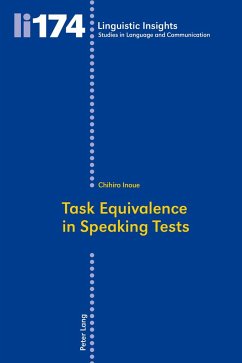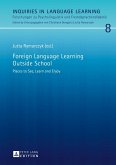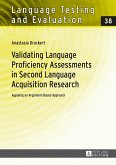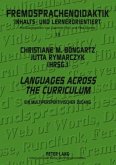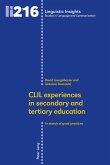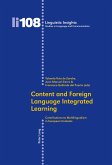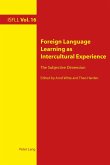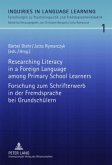This book addresses the issue of task equivalence, which is of fundamental importance in the areas of language testing and task-based research, where task equivalence is a prerequisite. The main study examines the two 'seemingly-equivalent' picture-based spoken narrative tasks, using a multi-method approach combining quantitative and qualitative methodologies with MFRM analysis of the ratings, the analysis of linguistic performances by Japanese candidates and native speakers of English (NS), expert judgements of the task characteristics, and perceptions of the candidates and NS. The results reveal a complex picture with a number of variables involved in ensuring task equivalence, raising relevant issues regarding the theories of task complexity and the commonly-used linguistic variables for examining learner spoken language. This book has important implications for the possible measures that can be taken to avoid selecting non-equivalent tasks for research and teaching.
Bitte wählen Sie Ihr Anliegen aus.
Rechnungen
Retourenschein anfordern
Bestellstatus
Storno

